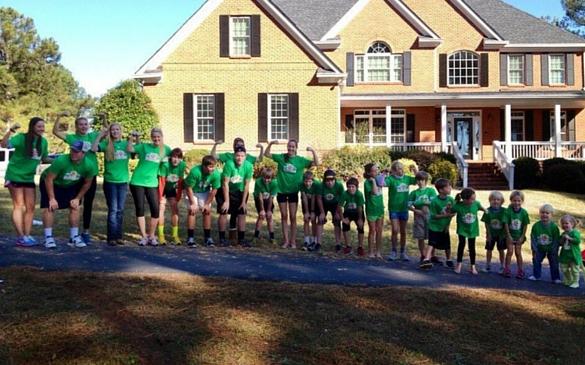By: Katie Sanders, Staff Writer
Everyone knows the story: the pilgrims, the Native Americans, the turkey- the first Thanksgiving. As the holiday approaches, some members of the Wofford community share their spin on the traditionally American celebration.
Dan Mathewson, professor of religion, is Canadian and proudly reminds us that Thanksgiving was first celebrated in present-day Canada. He deduces that this is the reason Canadians celebrate their holiday first, in October, and Americans follow in November. But besides the date, the holiday does not look noticeably different between the two countries.
“In Canada, we celebrate Thanksgiving by gathering together with our families,” says Mathewson. “We have a gigantic meal of turkey, mashed potatoes, stuffing, green-bean casserole, glazed carrots, pumpkin pie with whipped cream and so forth; and then we lay in a semi-comatose state on the couch, watching football all afternoon.”
However, the professor of religion does have one major theological concern with an overlooked detail of the holiday.
“The most vital change introduced [to Thanksgiving] by Americans is that they decided to add an extra down to the football games. Every Canadian knows that in the unadulterated, pure form of football a team has three downs, not four, in order to make 10 yards. Three! Like the Trinity. As God intended.”
What he sacrifices in football by having only celebrated American Thanksgiving since 1992, he gains in his wife’s cooking.
“I now only celebrate American Thanksgiving — but only because my wife puts bourbon in the pumpkin pie. I admit this is a decided improvement on the non-bourbon-infused pumpkin pie of my homeland.”
He adds, on a more serious note, that Thanksgiving seems to be more important to Americans than Canadians.
“I get the sense that for most Americans, Thanksgiving is the most important celebration of the year. For most Canadians, at least those in Toronto where I’m from, Christmas is.”
Sarah Madden, junior, agrees that her favorite holiday of the year is Thanksgiving. She says her family “does normal Thanksgiving things, but on a massive scale.”
“My huge family spends the week in my aunt and uncle’s house. There are 26 cousins, 10-12 adults and two or three dogs. We go through incredible amounts of food,” says Madden. “Every year on Thanksgiving morning, the cousins that are seniors in high school organize and put on a mile-long ‘Turkey Trot’ race that is timed and has awards. We all get matching t-shirts designed by that year’s organizers!”
Chad Rahman, junior, says his Syrian family also uses Thanksgiving as a time to bring family together.
“My family celebrates Thanksgiving in America,” he says. “We use it as an opportunity to bring together as much of the extended family and friends as possible. If someone were to join us, they would probably think we were just like any other American family.”
His family does incorporate a few middle-eastern dishes, which accompany the standard turkey. Although Syria does not celebrate Thanksgiving, family gatherings with food and fellowship are common.
Rahman explains, “The culture there is so family oriented that there are numerous times when the whole family meets up to have a similar feast. The most similar holiday I can think of would be Eid al-Fitr. This day marks the end of the month of Ramadan, and families gather to have a large feast, cook for the village and give to the poor.”
Yves Engelmann, a senior from Rwanda, says Rwanda has a holiday similar to Thanksgiving, but it revolves around farming.
“It’s what we call ‘Umuganura.’ Traditionally, farmers gathered on this day to celebrate a good harvest. Each farmer brings some of whatever crop they grew that year and the whole village gathers and has a day filled with food, drinks and dances. People take turns giving speeches on what they are thankful for and encouraging each other.”
Engelmann says the modern Umuganura celebration is a little different.
“I’ve only attended one in my 18 years in Rwanda, and it was very different. A lot of my extended family members and I gathered at my uncle’s home for a weekend. There was a lot of food, drink and music. There was a moment where everyone was quiet and people took turns sharing with the whole family what they have been up to, what they are thankful for and anything else they want to share. Some families do this every year, but it’s not a national holiday.”
Just like Mathewson and Rahman, Engelmann now celebrates Thanksgiving in the US, although not quite as large-scale as Madden.
He says, “I usually visit friends on Thanksgiving and help them eat the turkey. I basically celebrate à l’Americaine.”




























